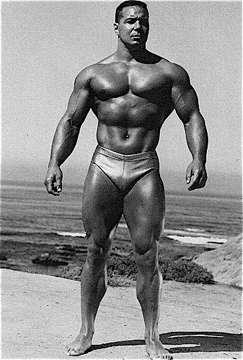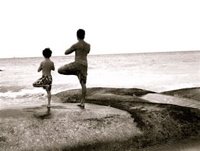|
To understand how physical exercise benefits longevity in humans, just look to nature.
Physical exercise benefits all living things by keeping the life-force flowing through them. A characteristic of life in nature is that once something ceases to move, it rapidly deteriorates. A leaf that has died on a tree can no longer sway in the wind, it has dried out and become brittle. If you look to anyone who has died of an illness, the same thing happens. All illnesses that lead to death, cause people to become bed ridden and this is what eventually causes the degeneration of their bodies! These are the risks of not exercising. So if you're wondering "why is exercise important?", it is so you can increase your human longevity potential. Certain physical exercise benefits that lead to changes in life expectancy are the strengthening of muscle and bone, the flushing of toxins out of tissues, the circulation of blood to the tissues (nutrients, energy and oxygen), the clearing of stagnant emotions and much more. In every longevity society around the globe, one of the healthy lifestyle factors common to each one of them is daily exercise. However, their physical exercise benefits may not come in the form of going to the gym or doing some of the more intense workouts that many enjoy in modern society. They mostly engage in constant "passive-external" (see the lists below) types of physical exercises. This leaves them with clean circulation, robust muscles and extremely good bone density from constantly gardening, farming as well as walking up and down hills (the majority of these blue zones are in mountainous or very hilly regions). In modern culture where more and more people aren't engaging in manual labour and are working at desks, it is perfectly acceptable to have one higher intensity daily exercise regime to get these physical exercise benefits in a more condensed time frame to make up for the lack of constant movement. With all the information available to you about how physical exercise benefits your health, you have to keep your goal of lifespan development in mind when choosing your daily exercise routine.There are risks to not exercising for longevity, but instead for competition or vanity. While it is certainly better than not exercising at all, exercising for competition will lead to an increased risk of injuries which basically detracts from your health. Exercising for vanity (such as for weight loss or just wanting big "pecs") can lead you to using techniques (such as over-training one part of your body) that harm your long term health and/or not focusing enough on the types of physical exercises that contribute to lifespan development. When choosing the types of physical exercises you will be taking part in, ideally you want to have a clear intention that they are for longevity. This way you will avoid the above mentioned problems and instead find longevity exercises that promote good circulation, cause you to sweat (detoxing your body), stimulate deep breathing (oxygenation) and build real functional strength (which greatly prevents injuries later on in life). These physical exercise benefits naturally lead to a beautiful, lean and muscled body, as well as a high level of athletic excellence. There's no rush to get there, so choosing to lead a longevity lifestyle is better in the long run so you don't burn out prematurely by exercising for vanity or competition! To maximize your physical exercise benefits, it is logical that you would need to do a variety of longevity exercises.
I like to categorize all movements and exercises as falling somewhere on a continuum or "sliding scale". On one end of this continuum you have very internal exercises and on the other end is very external exercises. Everyone needs a balance of both for optimal health. This will also help you choose which types of physical exercises you want to spend time doing. On the scale below I have divided both of the external and internal longevity exercises into "passive" and "active", for a total of four categories. Realistically, this "scale" would be gradual and not specific categories, but this just makes it simpler to describe: Internal: Passive: Active: External: Passive: Active: The entire first section titled "internal" is included because these should make up half of your time you set aside each week for daily exercise. Many people over look the health benefits of body-mind exercises when these are actually better for lifespan development than most physical exercise benefits. Over the course of every week you should include longevity exercises from each of these four sections. It goes without saying that when you are exercising for longevity, you would ideally not be choosing exercises which are known to have high rates of injuries, or risk killing you like outdoor rock climbing, extreme sports and competitive sports are known to do (for example squash is horrible for your knees!). Many eastern styles of exercise and fitness were specifically designed for a longevity lifestyle, so these are a better choice to become involved in. Here is a list of more research articles (coming soon!) on physical exercise benefits:~The science on why should people exercise. ~Research is increasingly showing the mental benefits of exercise. ~What are the real risks of not exercising? ~What are the best types of physical exercises for increasing bone density? ~How physical exercise benefits and acts as an hgh secretagogue (human growth hormone) in your body. Combining Both Mental and Physical Exercise Benefits Longevity in Humans (Part 1 of 2): Combining Both Mental and Physical Exercise Benefits Longevity in Humans (Part 2 of 2):
Click to return from "Physical Exercise Benefits" to the homepage. |
Govan's Favorite Sites and Products:
Elk Antler Velvet and Colostrum are nature's richest sources of growth factors and IGF-1!











